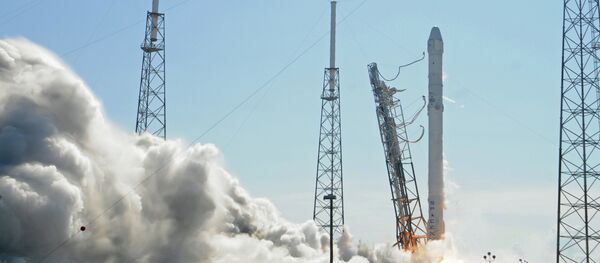During a recent presentation at a Center for Strategic and International Studies conference, deputy commander of US Strategic Command (USSTRATCOM), Navy Vice Adm. Charles A. Richard, said, "Just as nuclear assets deter aggression by convincing potential adversaries there's just no benefit to the attack, we have to maintain a space posture that communicates the same strategic message," according to Space.com
He added, "I submit [that] the best way to prevent war is to be prepared for war, and we're going to make sure that everyone knows we're going to be prepared to fight and win wars in all domains, to include space."
The launch of high tech equipment and advanced satellites has helped the US maintain supremacy in space, though Richard pointed out a number of advanced anti-satellite (ASAT) technologies being developed by Russia and China as a threat to this hegemony.
"While we're not at war in space, I don't think we can say we're exactly at peace, either," he said, pointing out that orbit is no longer the "benign environment" it once was, and that the space situation is part and parcel of a larger, global power struggle.
Richard suggested that "major power competition is back on the table in a way that we have not seen in the world for perhaps 15 or 20 years … That applies in all domains."
Washington must work, he stressed, to help prevent incidents like China’s ASAT test in 2007, where Beijing deliberately destroyed its defunct Fengyun-1C weather satellites using a ground-based ballistic missile, creating thousands of pieces of space debris and international outcry in the process.
In January 2016, the State Department's Emerging Security Challenges and Defense Policy Deputy Assistant Secretary Mallory Stewart called the act a "remarkable incident of irresponsible behavior."
Richard explained that "our goal ultimately is to promote secure access to space so it can be explored for generations to come … While we view space as just another domain — like land, air, sea and cyber — it is still something special. It is still a domain that people look up to and dream. And it's USSTRATCOM's job to help keep it that way."




